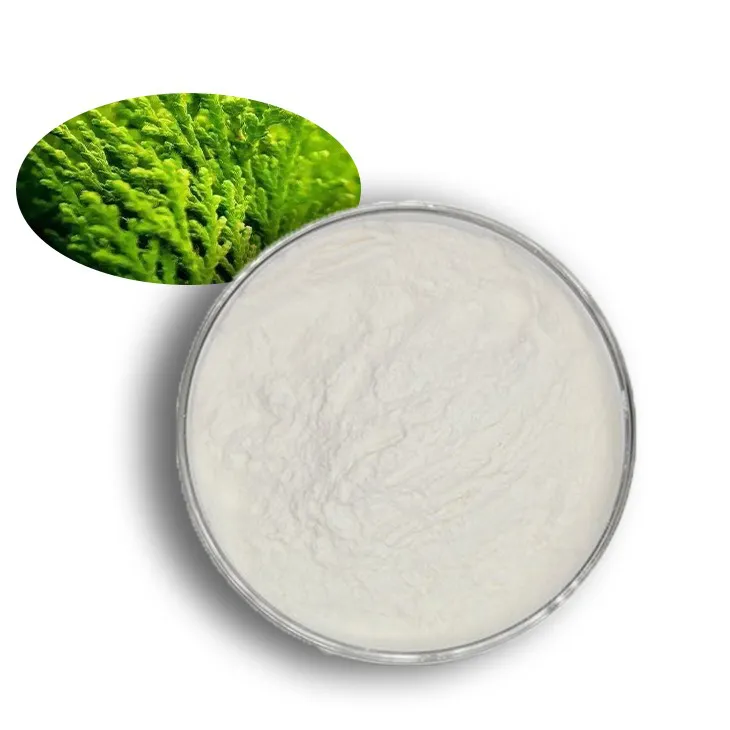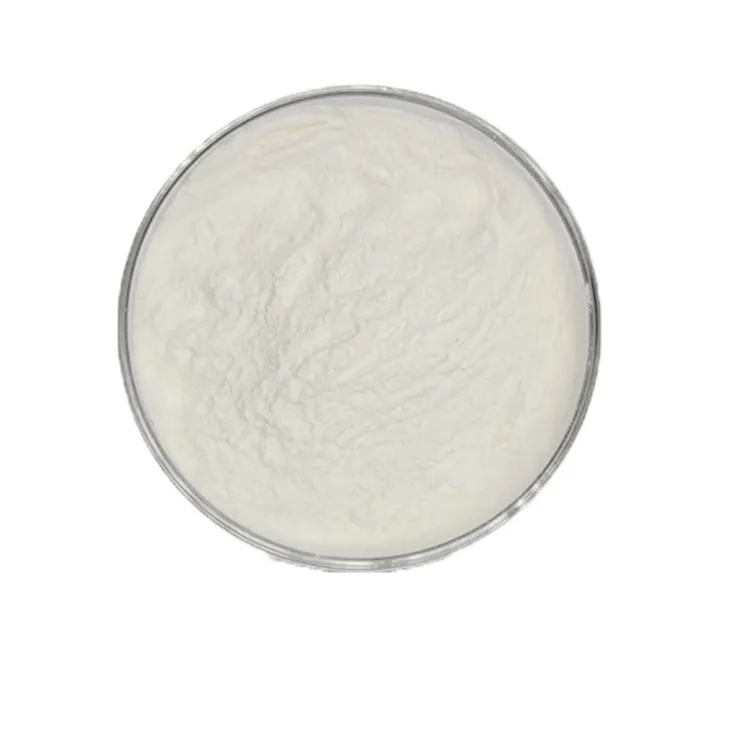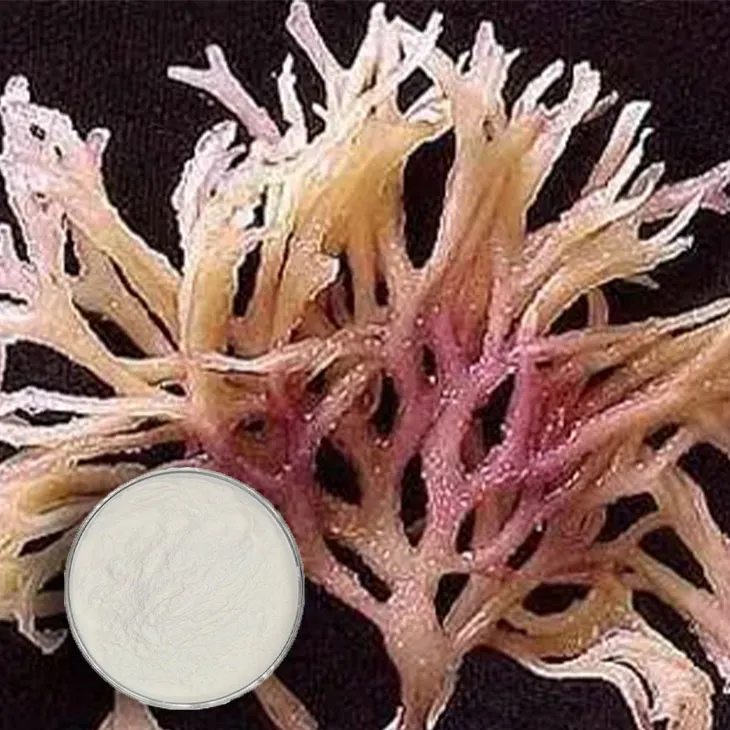- 0086-571-85302990
- sales@greenskybio.com
4 Things Consumers and Manufacturers Should Know about Carrageenan Extract Powder.
2024-12-21

1. Introduction to Carrageenan Extract Powder
Carrageenan Extract Powder is a widely - used ingredient in the food, cosmetic, and pharmaceutical industries. It is derived from red seaweed, which is rich in sulfated polysaccharides. Carrageenan has unique gelling, thickening, and stabilizing properties that make it a valuable additive in various products.

2. Different Types of Carrageenan Extract Powder
i. Kappa - Carrageenan
Kappa - carrageenan is one of the most common types. It forms strong, brittle gels in the presence of potassium ions. It is often used in dairy products such as ice cream, where it helps to prevent ice crystal formation and provides a smooth texture. In confectionery items like jelly candies, kappa - carrageenan gives the characteristic firmness and shape - holding ability.
ii. Iota - Carrageenan
Iota - carrageenan forms soft, elastic gels when combined with calcium ions. This type is popular in products requiring a more flexible texture, such as processed meats. It can also be found in some dairy - free products as a substitute for gelatin, providing a similar gelling effect without the use of animal - derived ingredients.
iii. Lambda - Carrageenan
Lambda - carrageenan does not form gels but is an excellent thickener. It is highly soluble in cold water and is often used in beverages, sauces, and salad dressings. Its thickening property helps to improve the viscosity and mouthfeel of these products without changing their overall fluidity too much.

3. Functionality in Products
i. In the Food Industry
- Gelling Agent: As mentioned earlier, different types of carrageenan play important roles in creating gels in various food products. For example, in puddings, kappa - carrageenan can form a firm gel that holds its shape when spooned out.
- Thickening Agent: In soups, sauces, and gravies, lambda - carrageenan or a combination of carrageenan types can be used to increase the thickness. This gives a more substantial and satisfying texture to the product.
- Stabilizer: In dairy products like milkshakes and yogurt, carrageenan helps to prevent separation of phases. It keeps the emulsion stable, ensuring that the product remains homogeneous during storage and consumption.
ii. In the Cosmetic Industry
- Texture Enhancer: Carrageenan extract powder can be used to improve the texture of creams, lotions, and gels. It gives a smooth, spreadable consistency that is desirable for these products.
- Thickener: In hair gels and styling products, it acts as a thickener, providing the necessary hold and viscosity. This helps in shaping and styling the hair.
iii. In the Pharmaceutical Industry
- Drug Delivery: Carrageenan can be used in the formulation of tablets and capsules. It can help in controlled release of drugs, ensuring that the active ingredients are released at the appropriate rate in the body.
- Suspending Agent: In liquid medications, it can act as a suspending agent, keeping insoluble particles evenly dispersed. This is important for accurate dosing and proper effectiveness of the medication.

4. Regulatory Aspects for Manufacturers
- Food - grade Standards: Manufacturers of food products containing carrageenan must adhere to strict food - grade standards. In many countries, there are specific regulations regarding the purity and quality of carrageenan used in food. For example, the European Union has set maximum limits for heavy metals and other contaminants in carrageenan used in food products.
- Labeling Requirements: Accurate labeling is crucial. Manufacturers need to clearly indicate the presence of carrageenan in the product. In some cases, they may also need to specify the type of carrageenan used, especially if it is relevant to potential allergens or dietary restrictions.
- Good Manufacturing Practice (GMP): Following GMP is essential. This includes proper handling, storage, and processing of carrageenan extract powder. Manufacturers need to ensure that the production environment is clean and hygienic to prevent contamination of the final product.
5. Consumer - relevant Information
i. Proper Usage
Consumers should follow the instructions provided on the product label when using products containing carrageenan. In the case of food products, this may involve storing the product at the appropriate temperature to maintain the integrity of the carrageenan - based gelling or thickening properties. For cosmetic products, it may mean using the product as directed to achieve the best results, such as applying the correct amount of a carrageenan - containing hair gel.
ii. Potential Side Effects
While carrageenan is generally recognized as safe (GRAS) by regulatory authorities in many countries, some studies have suggested potential side effects in certain situations. For example, in high doses or in some individuals with sensitive digestive systems, carrageenan may cause gastrointestinal discomfort. However, more research is needed to fully understand these potential effects. Consumers with concerns should consult a healthcare professional, especially if they have pre - existing digestive conditions or are consuming products with a high concentration of carrageenan.
FAQ:
Q1: What are the different types of carrageenan extract powder?
There are mainly three types of carrageenan extract powder: kappa - carrageenan, iota - carrageenan, and lambda - carrageenan. Kappa - carrageenan forms strong, rigid gels and is often used in dairy products like ice cream. Iota - carrageenan creates more elastic gels and can be found in some processed meats. Lambda - carrageenan is non - gelling and is used as a thickener in various liquid products.
Q2: How does carrageenan extract powder function in products?
As mentioned before, different types have different functions. In general, it can act as a thickener, stabilizer, and gelling agent. In food products, it helps to improve texture, prevent separation of ingredients, and enhance the overall quality. For example, in a pudding, it gives the smooth and thick texture that consumers expect.
Q3: What are the regulatory aspects that manufacturers need to consider?
Manufacturers need to comply with food safety regulations regarding the use of carrageenan extract powder. Different countries may have different regulations on the maximum allowable amount in food products. They also need to ensure proper labeling, indicating the presence of carrageenan if it is an ingredient. Additionally, the source and quality of the extract powder must meet certain standards to ensure its safety for consumers.
Q4: What are the proper usage methods for consumers?
Consumers usually don't directly use carrageenan extract powder in its pure form as it is mainly an ingredient in processed products. However, when purchasing products containing carrageenan, they should follow the instructions on the product label. For example, if it's a ready - to - eat food, just consume it as directed. If it's a product that needs to be prepared further, follow the preparation steps provided.
Q5: Are there any potential side effects of carrageenan extract powder?
There has been some debate regarding potential side effects. Some studies have suggested that in high doses or with degraded forms of carrageenan, there could be negative effects on the digestive system. However, in normal usage levels in food products, which are regulated, it is generally considered safe. Still, some individuals with sensitive digestive systems may experience mild discomfort, but this is relatively rare.
Related literature
- The Properties and Applications of Carrageenan in the Food Industry"
- "Carrageenan: Production, Properties and Uses - A Review"
- "Regulatory Aspects of Carrageenan in Food Products"
- ▶ Hesperidin
- ▶ Citrus Bioflavonoids
- ▶ Plant Extract
- ▶ lycopene
- ▶ Diosmin
- ▶ Grape seed extract
- ▶ Sea buckthorn Juice Powder
- ▶ Fruit Juice Powder
- ▶ Hops Extract
- ▶ Artichoke Extract
- ▶ Mushroom extract
- ▶ Astaxanthin
- ▶ Green Tea Extract
- ▶ Curcumin
- ▶ Horse Chestnut Extract
- ▶ Other Product
- ▶ Boswellia Serrata Extract
- ▶ Resveratrol
- ▶ Marigold Extract
- ▶ Grape Leaf Extract
- ▶ New Product
- ▶ Aminolevulinic acid
- ▶ Cranberry Extract
- ▶ Red Yeast Rice
- ▶ Red Wine Extract
-
Lycopene
2024-12-21
-
Avocado Extract Powder
2024-12-21
-
Licorice Root Extract Powder
2024-12-21
-
Pomegranate Extract
2024-12-21
-
Purple Sweet Potato Extract
2024-12-21
-
Coix Seed Extract
2024-12-21
-
Nettle Root Extract
2024-12-21
-
Hops Extract
2024-12-21
-
Reishi mushroom extract
2024-12-21
-
Lemon Juice Powder
2024-12-21





















